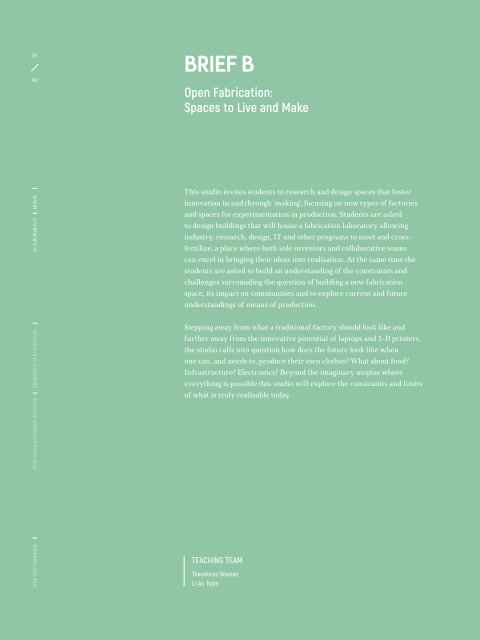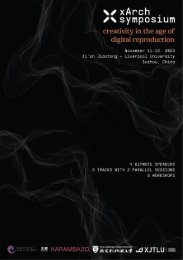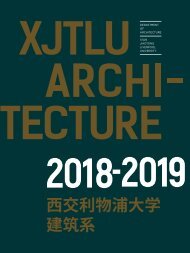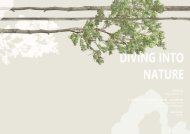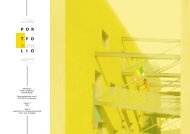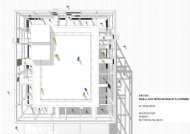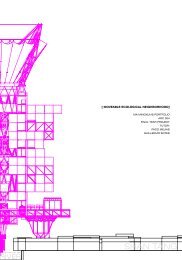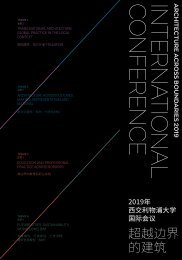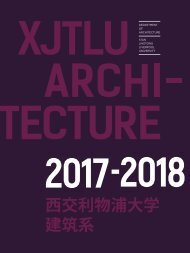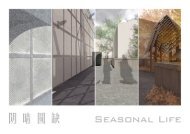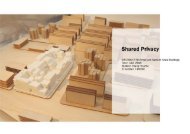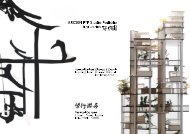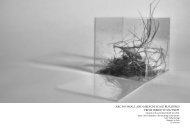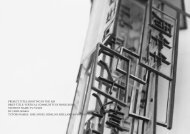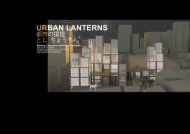YEARBOOK 2016 - 2017 | XJTLU DEPARTMENT OF ARCHITECTURE
The fourth edition of the yearbook of the Department of Architecture at Xi'an Jiaotong-Liverpool University presents student works created during the academic year 2016 - 2017. The yearbook exemplifies the new model for Chinese architectural education for which the department was commended by the Royal Institute of British Architects (RIBA). It is thus also a showcase of the creative culture that has guided our students in taking first steps to successful international careers as responsible and creative architectural designers. XJTLU offers RIBA Part 1, 2 and 3.
The fourth edition of the yearbook of the Department of Architecture at Xi'an Jiaotong-Liverpool University presents student works created during the academic year 2016 - 2017. The yearbook exemplifies the new model for Chinese architectural education for which the department was commended by the Royal Institute of British Architects (RIBA). It is thus also a showcase of the creative culture that has guided our students in taking first steps to successful international careers as responsible and creative architectural designers. XJTLU offers RIBA Part 1, 2 and 3.
Create successful ePaper yourself
Turn your PDF publications into a flip-book with our unique Google optimized e-Paper software.
139<br />
140<br />
BRIEF B<br />
Open Fabrication:<br />
Spaces to Live and Make<br />
<strong>2016</strong>-<strong>2017</strong> <strong>YEARBOOK</strong> Xi’an Jiaotong-Liverpool University Department of Architecture 西 交 利 物 浦 大 学 建 筑 系<br />
This studio invites students to research and design spaces that foster<br />
innovation in and through ‘making', focusing on new types of factories<br />
and spaces for experimentation in production. Students are asked<br />
to design buildings that will house a fabrication laboratory allowing<br />
industry, research, design, IT and other programs to meet and crossfertilize,<br />
a place where both sole inventors and collaborative teams<br />
can excel in bringing their ideas into realisation. At the same time the<br />
students are asked to build an understanding of the constraints and<br />
challenges surrounding the question of building a new fabrication<br />
space, its impact on communities and to explore current and future<br />
understandings of means of production.<br />
Stepping away from what a traditional factory should look like and<br />
further away from the innovative potential of laptops and 3-D printers,<br />
the studio calls into question how does the future look like when<br />
one can, and needs to, produce their own clothes? What about food?<br />
Infrastructure? Electronics? Beyond the imaginary utopias where<br />
everything is possible this studio will explore the constraints and limits<br />
of what is truly realisable today.<br />
TEACHING TEAM<br />
Theodoros Dounas<br />
Li-An Tsien<br />
Nikhil Seewoo


